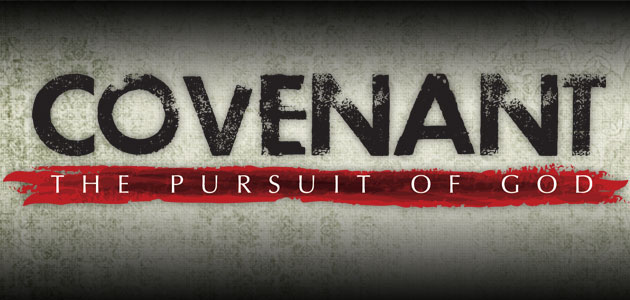Home | About Us | Directions | Bulletins | Sermons & Audio | Cross Of Christ Studies | Classes | Student and Parent Resource Page | Dangers Facing the "Non-Traditional"
Click Here for the Latest Edition of the Auburn Beacon
To Subscribe to
the Auburn Beacon please send an E-mail to:
larryrouse@aubeacon.com

Hear Buddy Payne
Speak in Auburn, Alabama
All Joy and Peace in Believing
![]()
![]()
Our God He is Alive
(Evidences from DNA)
![]()
![]()

The Final Stages of Israel's Apostasy
Adult
Bible Class in Progress - Sunday
Morning 9:30 - Auditorium Class
Planning to Visit Us?
What
to Expect
Current Class
Information
Thoughts To Ponder
(John 17:19)
I sanctify Myself,
that they also may
be sanctified by
the truth
You will need
the following viewers
to view many of the
files on this site.
![]()
Click here to
download
Adobe Acrobat Reader
![]()
Click here to
download
Microsoft PowerPoint Viewer
University church of Christ
Assembly Times
Sunday
Bible Classes (9:30)
AM Worship (10:20)
PM Worship (6:00 pm)
Wednesday
Bible
Classes
(7:00 PM)
Location
449 North Gay Street
Auburn, AL 36830
Click Here for Specific
Directions
Why I Oppose Instrumental Music
by Jeremy Crump
"Oh, I know about your church, you're the ones who don't worship with instruments!" It's a common response I receive when I tell others I am a member of the church of Christ. As much as I wish we as a group were most distinctive for other things, the absence of instruments in worship is usually the first thing outsiders notice about us. And yes, I admit, it does seem odd for a church to take such an unpopular and seemingly inconsequential position. However, I do not believe that the position one takes regarding this issue is inconsequential at all.
The fundamental question we should be asking when it comes to all our worship practices is, What does God want from our worship to Him? Worship is, after all, directed to Him, not us. That is why arguments made for or against worship practices based on one's personal preference or what will draw the most people or what best fits our time and culture are not compelling to me. They miss the point. They are not seeking to answer the fundamental question we should all be asking: What does our God desire from us (his worshippers) when we approach Him in worship?
To know what God wants from us, we must go to the instructions given to Christians by Jesus and His inspired apostles in the New Testament. These instructions govern not only the personal conduct of individual Christians but also the corporate worship practices of local churches.
If we look at what the New Testament says we can see that God has told us exactly what He wants us to bring to Him in worship. Simply, He has told us He wants us to sing:
Is anyone among you suffering? Let him pray. Is anyone cheerful? Let him sing praise (James 5:3).
Let the word of Christ dwell in you richly, teaching and admonishing one another in all wisdom, singing psalms and hymns and spiritual songs, with thankfulness in your hearts to God. And whatever you do, in word or deed, do everything in the name of the Lord Jesus, giving thanks to God the Father through him (Colossians 3:16-17).
And do not get drunk with wine, for that is debauchery, but be filled with the Spirit, addressing one another in psalms and hymns and spiritual songs, singing and making melody to the Lord with your heart... (Ephesians 5:18-19)
Clearly, God is pleased when His worshippers use their voices to proclaim praises to Him and to teach one another. There are no instructions in the New Testament about instruments in worship. There are no examples in the New Testament of Christians praising God with instruments. In fact, the presence of instruments of any kind in Christian churches was almost non-existent for the first millennia of the church's existence. Why would the church reject instruments so universally and so rigidly if their presence was a matter of indifference?
It is true that under the old covenant temple worship, the Israelites worshipped God with instruments. This is why we see, for instance, certain psalms that speak of worshipping God with "sounding cymbals" (Psalm 150:5). Yet the psalms also speak of worshipping God with "burnt sacrifices" (Psalm 20:3) and no one is arguing for the renewal of burnt sacrifices in Christian worship. When the New Testament writers spoke of the new covenant in Jesus Christ they made clear that the practices of the old covenant have been abolished (Romans 7:1-6; Galatians 3:23-25; 5:1-6; Hebrews 8:13). That is why one cannot justify Christian worship on the basis of the temple worship of the old covenant.
Our concern as worshippers of God should be to offer Him what He wants instead of what is convenient or preferable to us. God's swift punishment of Nadab and Abihu for the crime of offering "unauthorized fire before the LORD, which he had not commanded them" (Leviticus 10:1-3) should serve as a warning to us. God is not pleased when we act presumptuously and "go beyond what is written" (1 Corinthians 4:6). Let us be content to let God guide our actions in the church and let us offer Him the praise He deserves! "Through him then let us continually offer up a sacrifice of praise to God, that is, the fruit of lips that acknowledge his name" (Hebrews 13:5).
Other Articles
The Jewell of Consistency
The Sovereignty of God
The New Creature
Dealing With Our Doubts
Start With God
Seeking the Truth
Standing Up For Brethren
What Hunger Helps Us to See
They Watch for Your Souls
Suppose
For Past Auburn Beacons go to:
www.aubeacon.com/Bulletins.htm
Anyone can join the mailing list for the Auburn Beacon! Send your request to:
larryrouse@aubeacon.com






